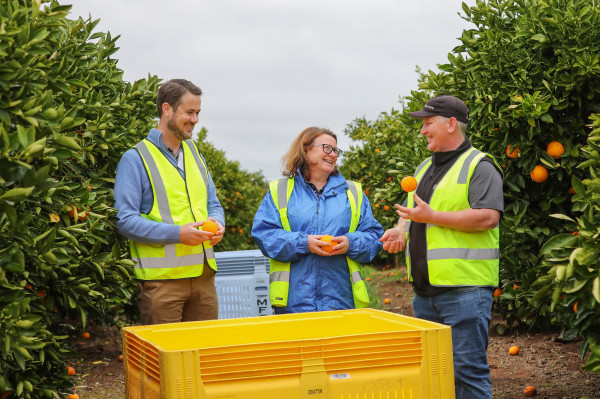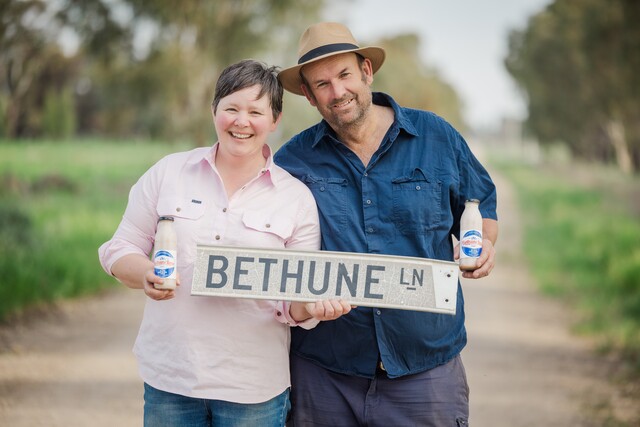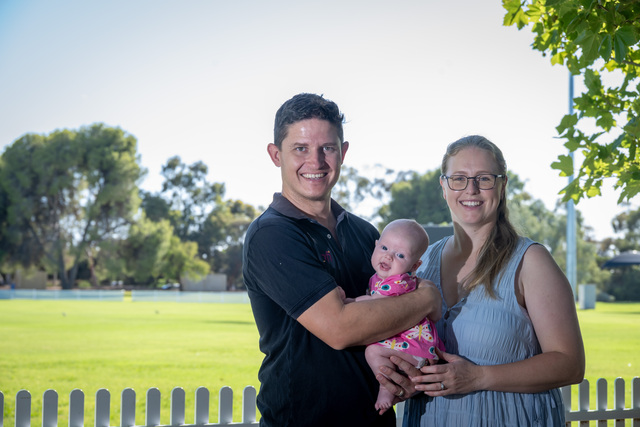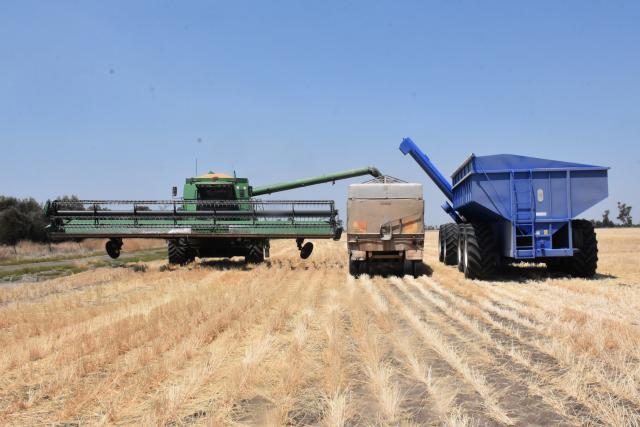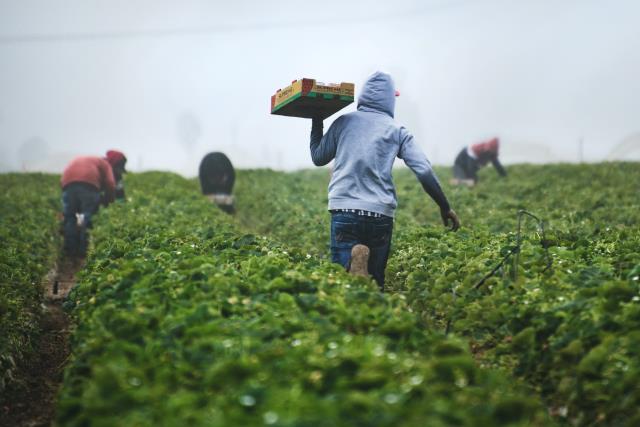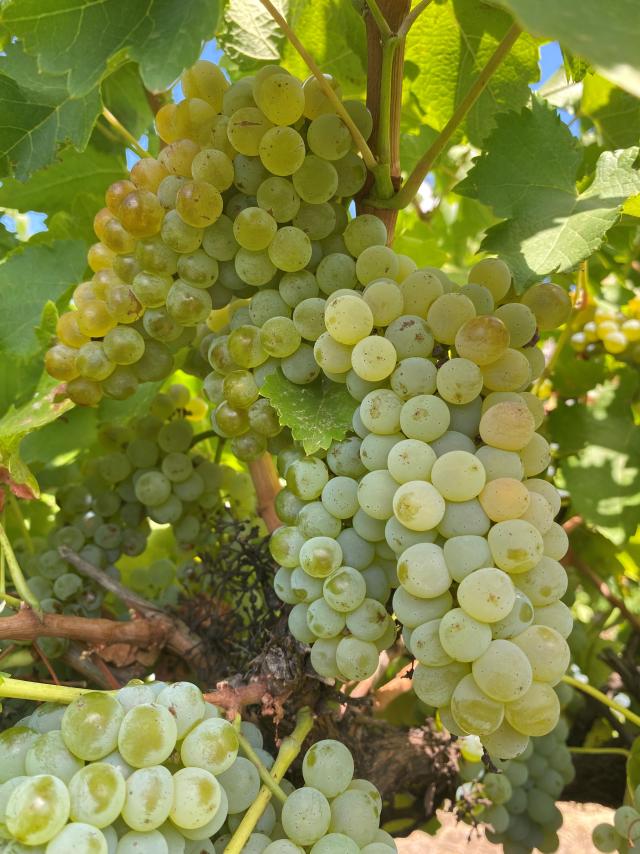A RESEARCH hub is being established in Mildura to support Australia’s irrigation regions to be the most productive, resilient and sustainable in the world.
The hub is part of the One Basin Cooperative Research Centre, a new national consortium of more than 85 partners across the agriculture, environment, water and technology sectors in the Murray-Darling Basin, including industry, business, government, research and not-for-profit organisations.
One Basin chief executive Professor Mike Stewardson says irrigation regions are experiencing rapid change – and not just due to climate.
He says demographics, government policy, markets, supply chains, finance, energy systems, business models, workforce needs and changing technologies all have an impact.
“A co-operative research centre – or CRC – is a critical mass of researchers working together with industry and government to solve a big challenge,” Prof Stewardson said.
“The One Basin CRC collaboration demonstrates a widespread desire in the Murray-Darling Basin to get ahead of the challenges of a changing future and to work together to develop solutions.
“We envisage a resilient and sustainable Murray-Darling Basin, powered by a strong innovation that supports basin communities, businesses and industries to adapt and thrive.”
It’s the first time such a large R&D partnership has existed in the basin and the CRC is undertaking 75 per cent of its work in four regional hubs at Loxton, Griffith, Goondiwindi and Mildura.
“We want to ensure regional issues and priorities are driving our research agenda,” Prof Stewardson said.
“It’s crucial our research is designed for, and directly relevant to, end-users.”
The Mildura hub, based at the Mallee Regional Innovation Centre, will provide the opportunity for local communities, businesses, industry and government to understand the science of the region in detail and for communities to share local insights and knowledge with researchers.
One Basin’s Mildura hub lead, Rebecca Wells, said the organisation’s presence in Mildura would be a boon for the region.
“Co-operative research centres are rare and highly regarded – there’s only about three funded each year,” she said.
“More than 85 partners with an appetite to collaborate over a 10-year period – that’s a real means for creating solutions to the serious challenges we are facing.”
The One Basin CRC was established in mid-2022 and is setting up the Mildura hub.
“We’ll shortly be recruiting a hub manager to lead activities, support projects, and connect organisations who want to be involved,” Ms Wells said.
“A regional advisory committee will be built of industry stakeholders – they’ll assess and direct projects to ensure the research is relevant and useful, and provide advice and guidance to researchers.
“Over the next decade, the four hubs will also we be home to about 50 PhD students – providing not just technical training, but an opportunity for our future science leaders to learn about the issues and priorities in these places first-hand.”
The Mildura One Basin hub is expected to focus much of its research on helping communities and the agricultural sector adapt to greater climatic variability.
It will work closely with the other four hubs, but in particular with the Loxton hub, on shared cross-border issues and solutions, as viticulture, almonds, citrus and dried fruit are important in both areas.
However, the One Basin CRC is focused on extending benefits beyond agriculture to include growth in the basin’s water, environmental, tourism and technology sectors. And along with economic growth, the CRC is aiming to deliver other benefits for regional communities, the environment and First Nations people.
“Our mission is to grow value from water in a changing world,” Prof Stewardson said.
“The Murray-Darling Basin represents a major proportion of Australia’s agricultural production, and its future rests on innovation to drive the transition to new business models and technologies that are responsive to climate change and meet expectations for environmental stewardship.”
Over the past six months, One Basin team members have been working to identify and prioritise the challenges in the Murray-Darling Basin, and to use this information to begin to direct research efforts.
For example, One Basin researchers will be looking at opportunities to increase the capacity of water supply systems – that is, finding ways to access and use alternative water sources, bolstering drought resilience. Researchers will also be looking at emerging water-saving systems.
The CRC is keen to involve the community in research projects, helping people to better understand healthy water systems, and promoting adoption of ecologically sustainable practices.
Although much research is expected to evolve over the coming years, 10 QuickStart projects are kicking off immediately, targeting challenges and needs that were pinpointed early.
Prof Stewardson said there was an open invitation for organisations get involved.
“We have six industry convenors responsible for our work on irrigated agriculture, technology, water planning, horticulture, wine and natural resource management.
“They are responsible for ensuring that these industries are engaged in One Basin’s work, so they are great people to talk to about the research priorities for a given sector.”
If anyone is interested to learn more, they can speak to with the relevant industry convenor, or contact the Mildura hub directly.
“We have a standing invitation for organisations to get involved,” Prof Stewardson said. “Look us up and get in touch.”
Get further details from admin@onebasin.com.au or onebasin.com.au

